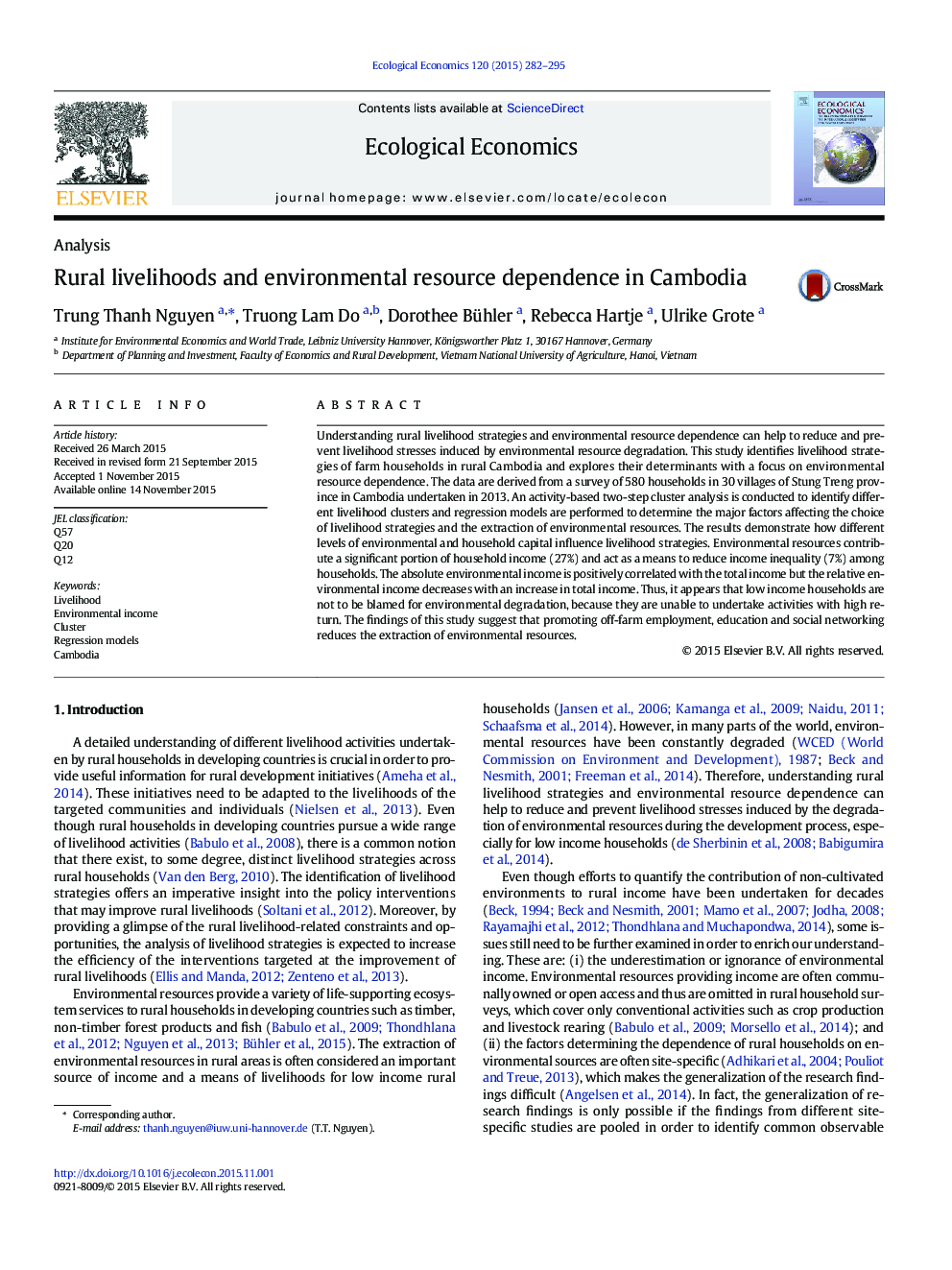| کد مقاله | کد نشریه | سال انتشار | مقاله انگلیسی | نسخه تمام متن |
|---|---|---|---|---|
| 5049208 | 1476359 | 2015 | 14 صفحه PDF | دانلود رایگان |
- Environmental resources contribute a significant portion of household income and act as a means to reduce income inequality
- Poor households are not to be blamed for environmental degradation as they are unable to undertake high-return activities
- Promoting off-farm employment, education, and social networking reduces the extraction of environmental resources.
Understanding rural livelihood strategies and environmental resource dependence can help to reduce and prevent livelihood stresses induced by environmental resource degradation. This study identifies livelihood strategies of farm households in rural Cambodia and explores their determinants with a focus on environmental resource dependence. The data are derived from a survey of 580 households in 30 villages of Stung Treng province in Cambodia undertaken in 2013. An activity-based two-step cluster analysis is conducted to identify different livelihood clusters and regression models are performed to determine the major factors affecting the choice of livelihood strategies and the extraction of environmental resources. The results demonstrate how different levels of environmental and household capital influence livelihood strategies. Environmental resources contribute a significant portion of household income (27%) and act as a means to reduce income inequality (7%) among households. The absolute environmental income is positively correlated with the total income but the relative environmental income decreases with an increase in total income. Thus, it appears that low income households are not to be blamed for environmental degradation, because they are unable to undertake activities with high return. The findings of this study suggest that promoting off-farm employment, education and social networking reduces the extraction of environmental resources.
Journal: Ecological Economics - Volume 120, December 2015, Pages 282-295
